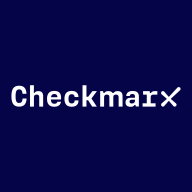

Veracode and Checkmarx Software Composition Analysis are prominent players in the application security space. Veracode appears to have the upper hand due to its comprehensive feature set and flexible integration capabilities.
Features: Veracode provides robust cloud-based scalability, thorough vulnerability detection, and seamless integration with CI/CD pipelines, ensuring continuous feedback for developers. It also offers superior source composition analysis and comprehensive live customer support. Checkmarx excels at ensuring the security of open-source components, offering detailed insights into library vulnerabilities and integrating seamlessly with development environments to provide user-friendly guidance on vulnerabilities.
Room for Improvement: Veracode users face challenges such as high false positives, costly pricing, an outdated user interface, limited language support, and cumbersome report generation. Response times and scanning inefficiencies are additional concerns. Checkmarx users experience a confusing licensing model and share concerns about high false positives and pricing. Both solutions could enhance dynamic analysis and user experience.
Ease of Deployment and Customer Service: Veracode's support for a wide range of deployment models, including public, private, and hybrid clouds, makes it versatile for various businesses. Customer support receives mixed reviews, with responsiveness being an issue for some. Checkmarx supports public and private clouds but lacks the deployment flexibility of Veracode. Users are generally satisfied with the training and support, despite occasional delays in responses.
Pricing and ROI: Veracode is pricey, with varying costs based on scale and features, which can be a barrier for smaller businesses. However, it offers ROI through risk management and reduced testing costs. Checkmarx is increasingly expensive compared to competitors but provides strong ROI by reducing open-source vulnerability risks and improving development efficiency. Both products face scrutiny over licensing complexities and costs.
| Product | Market Share (%) |
|---|---|
| Veracode | 6.5% |
| Checkmarx Software Composition Analysis | 3.4% |
| Other | 90.1% |

| Company Size | Count |
|---|---|
| Small Business | 7 |
| Large Enterprise | 8 |
| Company Size | Count |
|---|---|
| Small Business | 69 |
| Midsize Enterprise | 44 |
| Large Enterprise | 115 |
Checkmarx Software Composition Analysis (SCA) helps organizations manage the risks associated with open source and third-party components in their software applications. While leveraging open source libraries and third-party dependencies is common practice, it can also introduce security vulnerabilities and license risks.
Checkmarx SCA offers a multifaceted approach to managing these risks by:
Automatically scanning project repositories, build configurations, and manifests to create a comprehensive inventory of all components, including version information and associated licenses.
Performing vulnerability assessments on each component, including identifying and prioritizing actual exploitable or reachable vulnerabilities.
Protecting organizations from software supply chain attacks involving malicious packages, such as the XZ Utils backdoor.
Identifying licenses associated and providing insights into license obligations, restrictions, and potential conflicts.
Integrating seamlessly into existing development workflows and CI/CD pipelines.
Providing actionable remediation guidance to help organizations address identified vulnerabilities and compliance issues effectively.
Veracode is a leading provider of application security solutions, offering tools to identify, mitigate, and prevent vulnerabilities across the software development lifecycle. Its cloud-based platform integrates security into DevOps workflows, helping organizations ensure that their code remains secure and compliant with industry standards.
Veracode supports multiple application security testing types, including static analysis (SAST), dynamic analysis (DAST), software composition analysis (SCA), and manual penetration testing. These tools are designed to help developers detect vulnerabilities early in development while maintaining speed in deployment. Veracode also emphasizes scalability, offering features for enterprises that manage a large number of applications across different teams. Its robust reporting and analytics capabilities allow organizations to continuously monitor their security posture and track progress toward remediation.
What are the key features of Veracode?
What benefits should users consider in Veracode reviews?
Veracode is widely adopted in industries like finance, healthcare, and government, where compliance and security are critical. It helps these organizations maintain strict security standards while enabling rapid development through its integration with Agile and DevOps methodologies.
Veracode helps businesses secure their applications efficiently, ensuring they can deliver safe and compliant software at scale.
We monitor all Software Composition Analysis (SCA) reviews to prevent fraudulent reviews and keep review quality high. We do not post reviews by company employees or direct competitors. We validate each review for authenticity via cross-reference with LinkedIn, and personal follow-up with the reviewer when necessary.